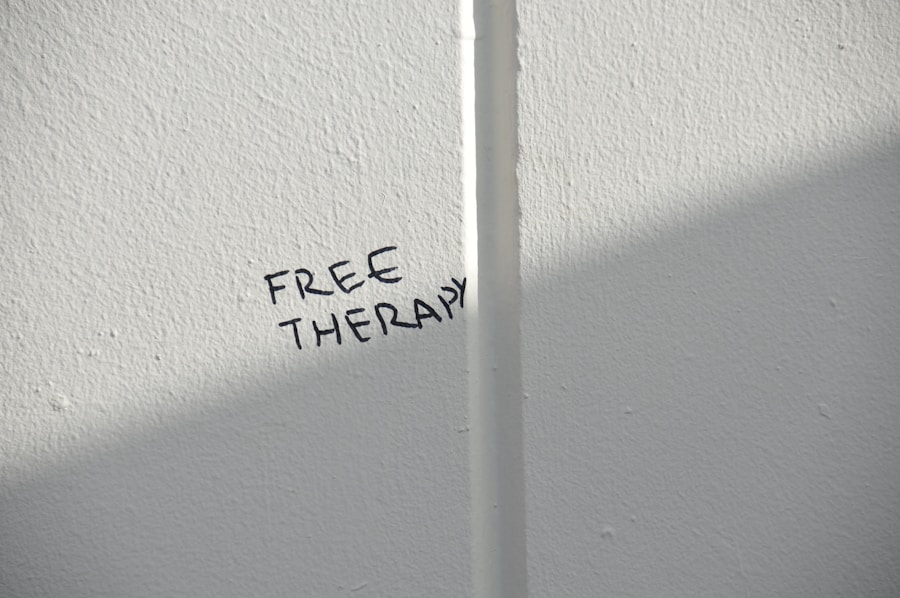Heartbreak is a profound emotional experience that can leave you feeling shattered and lost. When a significant relationship ends, your mind and body undergo a series of changes that can be both overwhelming and confusing. You may find yourself grappling with intense feelings of sadness, anger, and even guilt.
These emotions are not just fleeting; they can manifest physically, leading to symptoms such as fatigue, changes in appetite, and difficulty sleeping. Your brain, in response to the emotional turmoil, releases stress hormones like cortisol, which can exacerbate feelings of anxiety and depression. As you navigate through heartbreak, it’s essential to recognize that these reactions are entirely normal.
Your body is responding to a significant loss, and just like any other form of grief, it requires time and care to heal. You might experience a rollercoaster of emotions, from moments of nostalgia to sudden waves of despair. Understanding that this is a natural part of the healing process can help you approach your feelings with compassion rather than judgment.
Acknowledging your pain is the first step toward recovery, allowing you to process your emotions in a healthy way.
Key Takeaways
- Heartbreak can have a significant impact on both the mind and body, leading to symptoms such as depression, anxiety, and physical pain.
- Seeking professional help after a breakup can provide numerous benefits, including gaining a better understanding of your emotions and developing healthy coping mechanisms.
- Finding a breakup therapist near you can be done through online directories, referrals from friends or family, or by contacting your insurance provider for a list of covered providers.
- When looking for a breakup therapist, it’s important to consider factors such as their experience, approach, and compatibility with your personality and needs.
- Breakup therapy can involve various approaches and techniques, such as cognitive-behavioral therapy, mindfulness, and somatic experiencing, tailored to individual needs and preferences.
The Benefits of Seeking Professional Help After a Breakup
Seeking professional help after a breakup can be one of the most empowering decisions you make during this challenging time. A therapist provides a safe space for you to express your feelings without fear of judgment. This support can be invaluable as you work through the complex emotions that arise from the end of a relationship.
By talking to someone trained in navigating heartbreak, you can gain insights into your feelings and behaviors, helping you understand the underlying patterns that may have contributed to the breakup. Moreover, therapy offers you tools and strategies to cope with your emotions effectively. You may find yourself overwhelmed by sadness or anger, and a therapist can guide you in developing healthier coping mechanisms.
This professional support not only helps you process your grief but also empowers you to rebuild your self-esteem and confidence. As you work through your feelings with a therapist, you’ll likely discover new perspectives on your relationship and yourself, paving the way for personal growth and healing.
How to Find a Breakup Therapist Near You

Finding a breakup therapist who resonates with you is crucial for effective healing. Start by researching local mental health professionals who specialize in relationship issues or grief counseling. Online directories and platforms can be helpful in narrowing down your options based on location, specialties, and client reviews.
You might also consider asking friends or family for recommendations; personal referrals can often lead you to someone who has successfully helped others in similar situations. Once you have a list of potential therapists, take the time to review their credentials and areas of expertise. Many therapists offer initial consultations, which can be an excellent opportunity for you to gauge whether their approach aligns with your needs.
During this meeting, pay attention to how comfortable you feel discussing your feelings with them. Establishing a good rapport is essential for effective therapy, so trust your instincts when deciding who might be the best fit for your healing journey.
What to Look for in a Breakup Therapist
| Criteria | Importance | Description |
|---|---|---|
| Qualifications | High | Look for a therapist with a relevant degree (e.g. psychology, counseling) and specialized training in breakup therapy. |
| Experience | High | Choose a therapist with several years of experience in helping individuals cope with breakups and relationship issues. |
| Approach | Medium | Consider the therapist’s approach to breakup therapy, such as cognitive-behavioral therapy, mindfulness-based therapy, or psychodynamic therapy. |
| Empathy | High | Seek a therapist who demonstrates empathy and understanding towards your emotions and experiences during the breakup. |
| Availability | Medium | Ensure the therapist has availability for regular sessions and can accommodate your schedule. |
When searching for a breakup therapist, there are several key qualities to consider that can significantly impact your therapeutic experience. First and foremost, look for someone who specializes in relationship issues or has experience dealing with heartbreak specifically. Their expertise will ensure they understand the nuances of your situation and can provide tailored guidance as you navigate your emotions.
Additionally, consider the therapist’s approach to therapy. Some may focus on cognitive-behavioral techniques, while others might employ more holistic or psychodynamic methods. It’s essential to find someone whose style resonates with you.
You should feel comfortable expressing your thoughts and emotions openly. A good therapist will create an environment where you feel safe and supported, allowing you to explore your feelings without reservation.
The Different Approaches and Techniques Used in Breakup Therapy
Breakup therapy encompasses various approaches and techniques designed to help you process your emotions and facilitate healing. Cognitive-behavioral therapy (CBT) is one common method that focuses on identifying negative thought patterns and replacing them with healthier ones. This approach can be particularly beneficial if you find yourself stuck in cycles of self-blame or negative thinking after a breakup.
Another effective technique is narrative therapy, which encourages you to reframe your story surrounding the breakup. By exploring how the relationship has shaped your identity and understanding its impact on your life, you can gain clarity and perspective. Additionally, some therapists may incorporate mindfulness practices into their sessions, helping you stay present with your emotions rather than becoming overwhelmed by them.
Each approach offers unique benefits, so discussing these options with your therapist can help tailor the experience to suit your needs.
Tips for Making the Most of Breakup Therapy Sessions

To maximize the benefits of your breakup therapy sessions, it’s essential to come prepared and open-minded. Before each session, take some time to reflect on what you want to discuss. Consider journaling about your feelings or any specific incidents that have triggered strong emotions since your last meeting.
This preparation will help you articulate your thoughts more clearly during therapy. Additionally, be open to feedback from your therapist. They may offer insights or suggestions that challenge your current way of thinking, which can be uncomfortable but ultimately beneficial for your growth.
Remember that healing is not always linear; there will be ups and downs along the way. Embrace the process and allow yourself to be vulnerable during sessions; this openness will foster deeper connections and facilitate more profound healing.
How Breakup Therapy Can Help You Heal and Move Forward
Breakup therapy serves as a powerful catalyst for healing and personal growth. As you work through your emotions with a trained professional, you’ll begin to understand the lessons learned from the relationship and how they can inform your future choices. This newfound clarity allows you to let go of lingering attachments and move forward with confidence.
Moreover, therapy helps rebuild your sense of self-worth after a breakup. You may have internalized negative beliefs about yourself during the relationship or after its end; therapy provides an opportunity to challenge these beliefs and cultivate a more positive self-image. As you learn to embrace your individuality and strengths, you’ll find it easier to engage in new relationships when you’re ready, armed with the knowledge gained from past experiences.
The Importance of Self-Care and Support Systems During Heartbreak
While therapy plays a crucial role in healing from heartbreak, self-care and support systems are equally important components of recovery. Engaging in activities that bring you joy—whether it’s exercising, pursuing hobbies, or spending time with loved ones—can significantly improve your emotional well-being during this challenging time. Prioritizing self-care allows you to nurture yourself physically and emotionally, creating a solid foundation for healing.
Additionally, surrounding yourself with supportive friends and family members can provide comfort and understanding as you navigate through heartbreak. Sharing your feelings with trusted individuals can alleviate some of the burdens you’re carrying and remind you that you’re not alone in this journey. Building a strong support network will not only help you cope with the pain but also encourage resilience as you move forward into new chapters of your life.
In conclusion, navigating heartbreak is undoubtedly challenging, but understanding its impact on both your mind and body is the first step toward healing. Seeking professional help can provide invaluable support as you work through complex emotions while finding a therapist who aligns with your needs is essential for effective recovery. Embrace various therapeutic approaches while making the most of each session by being prepared and open-minded.
Remember that self-care and support systems are vital during this time; they will help guide you toward healing and personal growth as you move forward into brighter days ahead.
